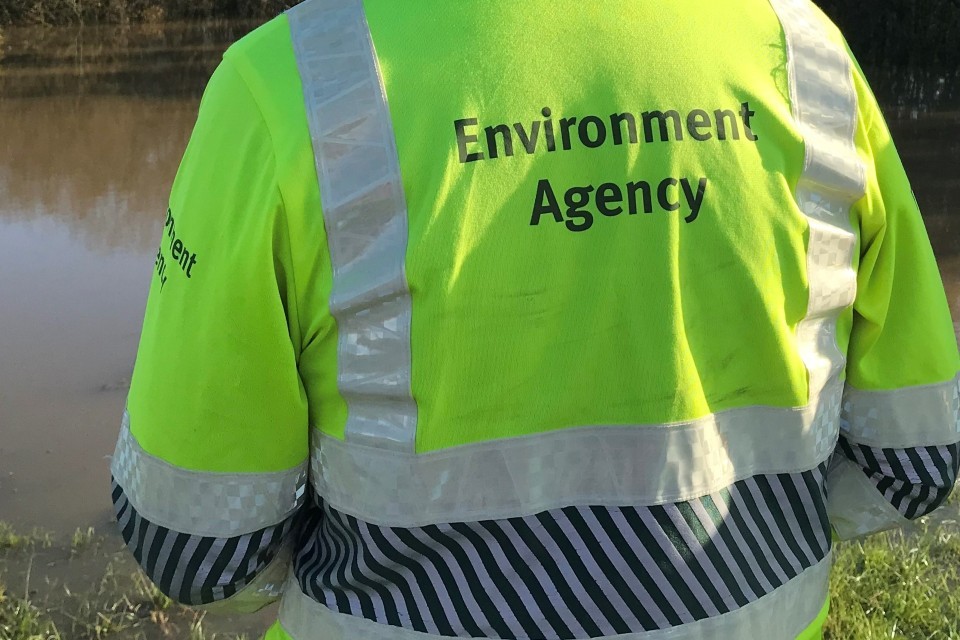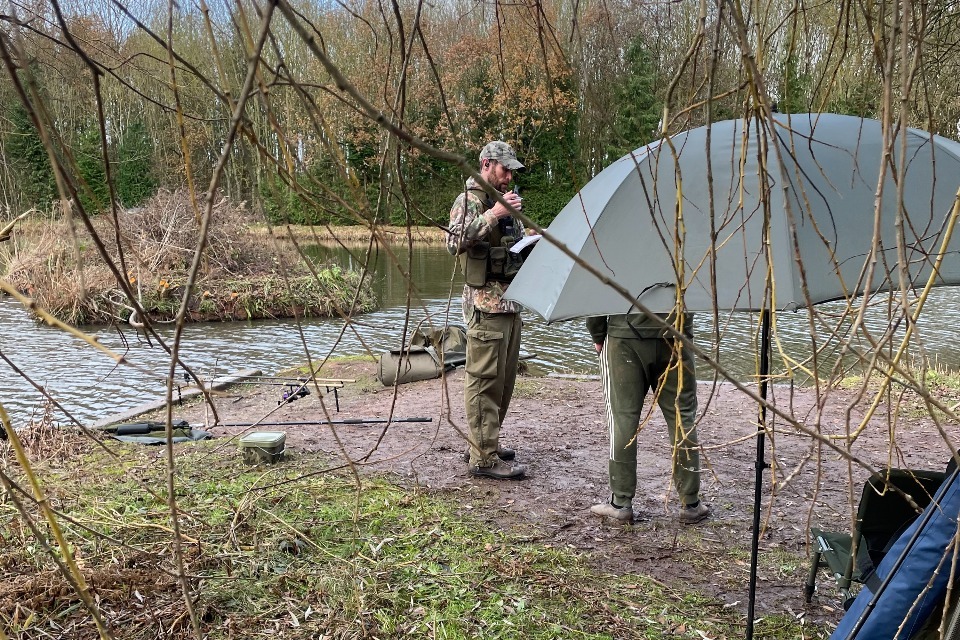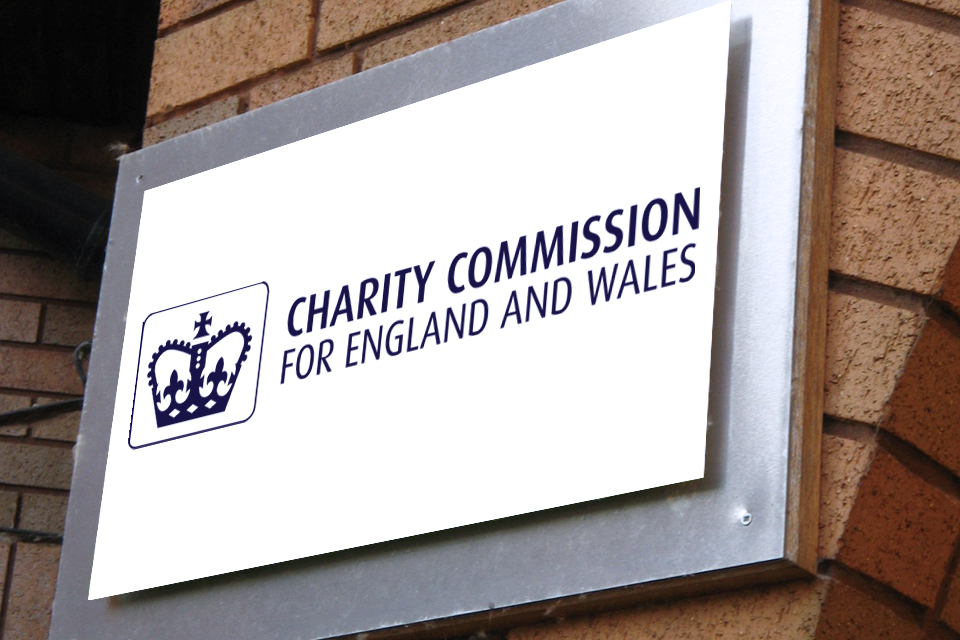The changing climate means we will see more extreme weather in the coming years, the National Drought Group heard at its latest meeting today (16 October 2024), which was attended by Water Minister Emma Hardy.
The Environment Agency chaired a routine meeting of the expert group today in which it was confirmed that water resources are currently healthy following the wettest 12 months (October 2023 to September 2024) on record in England. However, the Group discussed that flood and drought should be viewed as different sides of the same coin and England needs to be prepared for an increase of both in the coming years.
Despite recent warnings about flood preparedness, the Environment Agency reiterated that droughts are likely to become more frequent and more severe in future, and we need to be ready for all rainfall scenarios. Extreme dry weather can come unexpectedly, as happened in the summer of 2022, and can impact our lives in various ways, including on agriculture. At the meeting, attendees heard about the challenges farmers and growers have experienced this year in managing the variable weather conditions. The importance of making the environment more resilient to the impacts of all weather extremes was also discussed.
It comes a week after the Environment Agency warned there were significant areas of under-delivery against water resource management plans, meaning improvements are needed in order to manage water supplies efficiently and sustainably.
Chairing the meeting, Environment Agency Director of Water, Helen Wakeham said
Heavier rainfall and drier summers are the shape of things to come, and this will be an enormous challenge over the next few decades.
As well as preparing for floods, we must ensure we are resilient to drought, and we cannot be complacent even when water resources are healthy.
Water companies must deliver on their commitments to improve infrastructure and rollout smart water meters, but we can all take small steps to reduce demand such as installing a water butt to capture rain to water the garden.
Water and Floods Minister Emma Hardy said
Population growth and climate change is putting tremendous pressure on our water system, and we all saw in 2022 how quickly drought can take hold.
We need to be prepared for all eventualities and the government is taking decisive action to improve the resilience of our precious water supplies.
This Government will secure investment to upgrade our crumbling water infrastructure, which in turn will help fix leaks and ensure water is used more efficiently.
The National Drought Group – which includes the government, regulators, water companies, farmers, conservation experts and the Met Office – heard about the current water resources situation
-
The last 12 months has been the wettest October to September on record since 1836 for England. Some parts of the country received more than three times the average rainfall in September.
-
Reservoir storage across England was at 76% of total capacity at the end of September.
-
River flows in September were normal or higher at three-quarters of sites, with a third ‘exceptionally high’ for the time of year.
-
Groundwater levels usually continue to decline in September and, despite the wet weather, this is the case for the majority of sites. However, we are now seeing groundwater levels in early October rising in many aquifers in response to the exceptionally wet September.
Water resources
By 2050, England will need to find an additional 5 billion litres of water a day to meet demand for public water supply. This is more than a third of the 14 billion litres of water currently put into the public water supply. To bridge the gap between supply and demand, proposed developments over the next three decades include nine new reservoirs. However, earlier this month the EA warned of under-delivery against these plans, noting that some water companies wouldn’t have had sufficient water supply to meet planned levels of resilience in the event of a drought last year.
In the last six months, regulators – including the EA, Ofwat and Natural England – have been working with all water companies on their final 2025-2030 Water Resource Management Plans. National Drought Group members also heard that the EA will launch an eight-week public consultation in the coming weeks on how drought is managed in England, calling for public views on the document and input into its operational area drought plans.
Further information
The meeting follows recent measures announced by the government and the Environment Agency to drive improvements across the water sector.
-
100% of storm overflows are monitored which helps the Environment Agency to inspect water companies and ensure they are operating within their permits.
-
The EA is implementing a fourfold increase in water company inspections to hold companies to account – 4000 will be carried out by the end of March 2025, and 10,000 in 2025/26.
-
The EA is recruiting up to 500 additional staff and using more data-driven analytics to identify any non-compliance and take action.
-
The EA is conducting its largest ever criminal investigation into potential widespread non-compliance by water and sewerage companies at thousands of sewage treatment works. Tough enforcement action has already led to over £151m in fines since 2015.
-
In his first week, the Secretary of State for Environment Food and Rural Affairs Steve Reed announced a series of initial steps towards ending the crisis in the water sector.
-
After writing to Ofwat, the Secretary of State has secured agreement that funding for vital infrastructure investment is ringfenced and can only be spent on upgrades benefiting customers and the environment. Ofwat will also ensure that when money for investment is not spent, companies refund customers, with money never allowed to be diverted for bonuses, dividends or salary increases.
-
Water companies will place customers and the environment at the heart of their objectives. Companies have agreed to change their ‘Articles of Association’ – the rules governing each company – to make the interests of customers and the environment a primary objective.
-
There will be strengthened protection and compensation for households and businesses when their basic water services are affected. Subject to consultation, the amount of compensation customers are legally entitled to when key standards are not met will more than double. The payments will also be triggered by a wider set of circumstances including Boil Water Notices.
-
The Secretary of State has announced that the Government will be carrying out a review to fundamentally transform how our water system works and clean up our rivers, lakes and seas for good.
-
The Water (Special Measures) Bill has been introduced to Parliament. It will
- Strengthen regulation to ensure water bosses face personal criminal liability for lawbreaking.
- Give the water regulator new powers to ban the payment of bonuses if environmental standards are not met.
- Boost accountability for water executives through fitness and proprietary tests.
- Introduce new powers to bring automatic and severe fines.
- Require water companies to install real-time monitors at every sewage outlet with data independently scrutinised by the water regulators.








